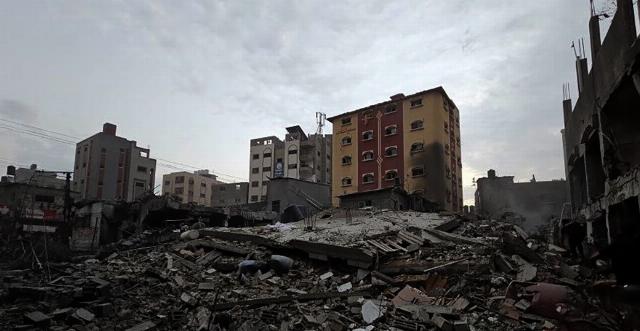The worms in the Gaza deal apple
Am I skeptical about the Gaza Peace plan? Of course. No one should have confidence that a genocidal terrorist group will keep its commitments.
This said, it’s also important, as Donald Trump reminded Benjamin Netanyahu at the White House, to know when to say Yes.
It’s the politician’s old trick: don’t answer the question that was asked, but the question you wanted to hear. Hamas said, Yes, but….
Trump pounced on the Yes. And marshaling his tremendous energy behind the deal -- some have called it the Trump “juggernaut” -- he is making it nearly impossible for Hamas supporters such as Qatar and Turkey to block the implementation of the deal, starting with the hostage release.
For now, Israel achieves its war aims. It gets the hostages back, it smashes Hamas as a military force, and it removes Hamas from any future role in governing Gaza.
It’s going to be very hard for Hamas to walk back those concessions. And once Israel withdraws from most of Gaza and winds down the mobilization of its citizen soldiers, it will be very hard for Israel to go back to war without an incredibly serious provocation.
Israeli society has been under enormous strain these past two years with the call-up of so many hundreds of thousands of reservists. Divorce rates among reservists have skyrocketed, as have suicide rates and bankruptcies.
It’s a miracle that Israel still has an economy -- let alone one that today is growing at a 3.5% rate!
So I suspect that the forces of entropy will set in once the initial steps of the deal kick in, making it increasingly hard for both sides to return to war. And that is what Trump is counting on.
Still, there are many, many worms in this apple.
First, of course, is the participation of Qatar and Turkey -- the main financial and political backers of Hamas. They now become part of the Arab stabilization force that will enforce the deal on the ground.
Will they play it straight and prevent Hamas from reconstituting itself? Or will they provide the terrorists with covert assistance? We shall see.
Next is the role of the Europeans.
Notice that Trump did not include European governments in the negotiations, and for good reason. There is no good to be had from a European involvement in this process.
Just to put a fine point on that, French president Emmanuel Macron convened a foreign ministers' meeting on Thursday in Paris to announce his support, and the EU’s support, for a Palestinian state.
That is just a non-starter in Israel and everyone knows it. But Macron wants his share of the limelight, so he crowing like a French coq for the cameras.
And then there is the whole issue of “deradicalization,” which is actually Point One of the Trump Plan.
That means an end to the incitement that begins at the earliest ages through the official Palestinian schoolbooks, which are openly and viciously anti-Semitic.
That means an end to “pay for slay,” the Palestinian Authority policy to pay monthly stipends to the families of Palestinians who have been jailed in Israel for murdering Jews. (As part of the hostage release, Israel must release another 250 murderers, a very hard pill to swallow).
In the end it all comes down to Trump.
He has staked his authority but also his credibility that both sides will negotiate in good faith to implement the rest of his 20-point plan. And he is not just a powerful force to be reckoned with: he is the most powerful force on the planet.
Kenneth R. Timmerman is a senior fellow at the America First Policy Institute. His latest work of non-fiction, The Iran House: Tales of Revolution, Persecution, War, and Intrigue, was recently published by Bombardier Books.

Image: Fars Media Corp.